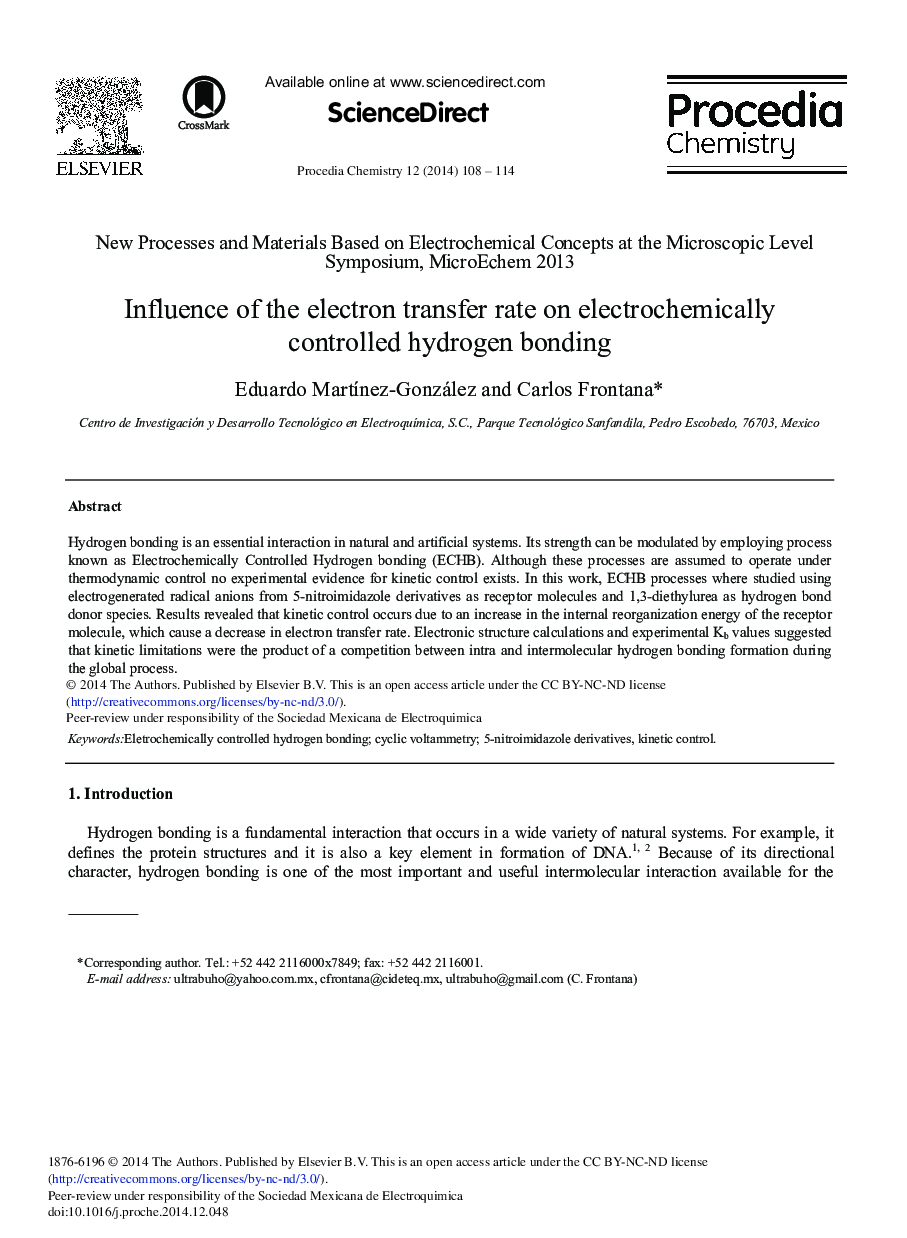| Article ID | Journal | Published Year | Pages | File Type |
|---|---|---|---|---|
| 239757 | Procedia Chemistry | 2014 | 7 Pages |
Hydrogen bonding is an essential interaction in natural and artificial systems. Its strength can be modulated by employing process known as Electrochemically Controlled Hydrogen bonding (ECHB). Although these processes are assumed to operate under thermodynamic control no experimental evidence for kinetic control exists. In this work, ECHB processes where studied using electrogenerated radical anions from 5-nitroimidazole derivatives as receptor molecules and 1,3-diethylurea as hydrogen bond donor species. Results revealed that kinetic control occurs due to an increase in the internal reorganization energy of the receptor molecule, which cause a decrease in electron transfer rate. Electronic structure calculations and experimental Kb values suggested that kinetic limitations were the product of a competition between intra and intermolecular hydrogen bonding formation during the global process.
